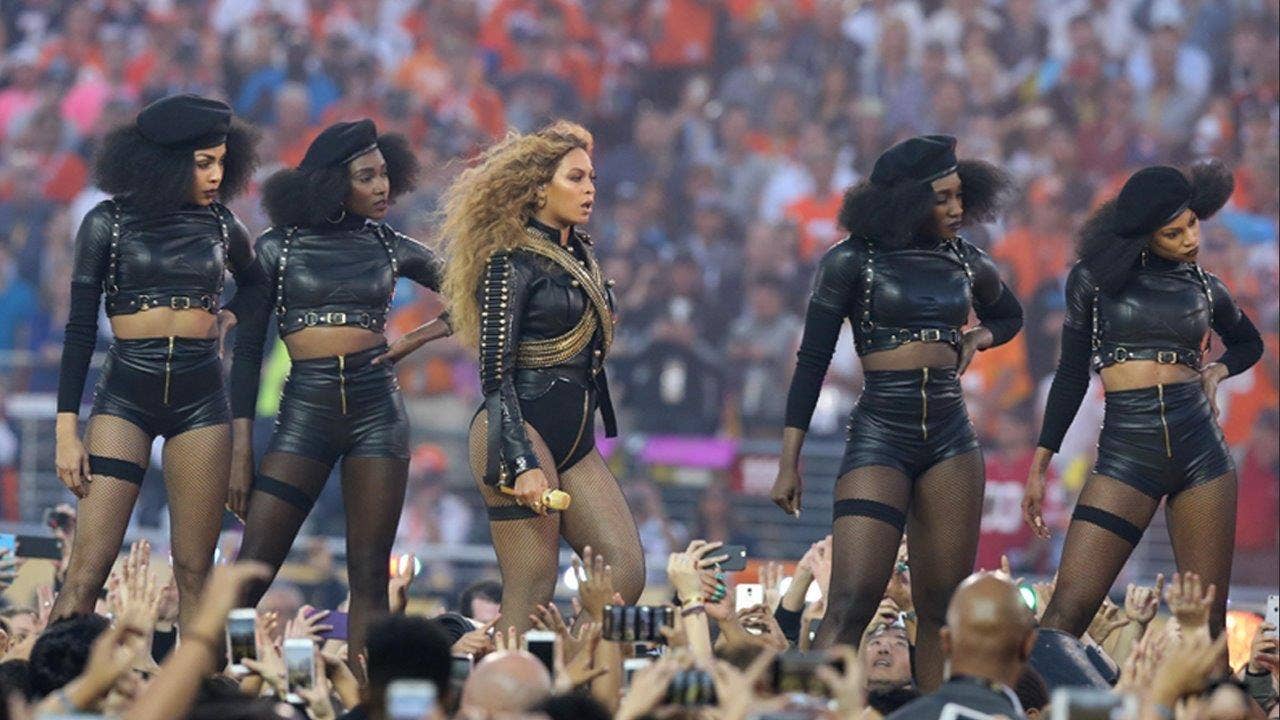For the Guardian, author Zadie Smith writes about her relationship to dance, and the many inspirational forms it takes, from Frenchmens’ butts bouncing to the top of the High Line to Fred Astaire. Below, she writes about the magic that is Janet Jackson, Madonna, and Beyoncé, and their equivalents in the writing world. Read in full via the Guardian.
These three don’t just invite copies – they demand them. They go further than legibility into proscription. They lead armies, and we join them. We are like those uniformed dancers moving in military formation behind them, an anonymous corps whose job it is to copy precisely the gestures of their general.
This was made literal on Beyoncé’s Formation tour recently, when the general raised her right arm like a shotgun, pulled the trigger with her left and the sound of gunshot rang out. There is nothing intimate about this kind of dancing: like the military, it operates as a form of franchise, whereby a ruling idea – “America”, “Beyoncé” – presides over many cells that span the world. Maybe it is for this reason that much of the crowd I saw at Wembley could be found, for long periods, not facing in the direction of the stage at all, instead turning to their friends and partners. They didn’t need to watch Beyoncé any more than soldiers need to look fixedly at the flag to perform their duties. Our queen was up there somewhere dancing – but the idea of her had already been internalised. Friends from the gym stood in circles and pumped their fists, girlfriends from hen nights turned inwards and did “Beyoncé” to each other, and boys from the Beyhive screamed every word into each other’s faces. They could have done the same at home, but this was a public display of allegiance.
Janet Jackson kicked off this curious phenomenon, Madonna continued it, Beyoncé is its apex. Here dancing is intended as a demonstration of the female will, a concrete articulation of its reach and possibilities. The lesson is quite clear. My body obeys me. My dancers obey me. Now you will obey me. And then everybody in the crowd imagines being obeyed like Bey – a delightful imagining.
Lady writers who inspire similar devotion (in far smaller audiences): Muriel Spark, Joan Didion, Jane Austen. Such writers offer the same essential qualities (or illusions): total control (over their form) and no freedom (for the reader). Compare and contrast, say, Jean Rhys or Octavia Butler, lady writers much loved but rarely copied. There’s too much freedom in them. Meanwhile every sentence of Didion’s says: obey me! Who runs the world? Girls!
*Image of Beyoncé at the 2016 Superbowl via Fox News
